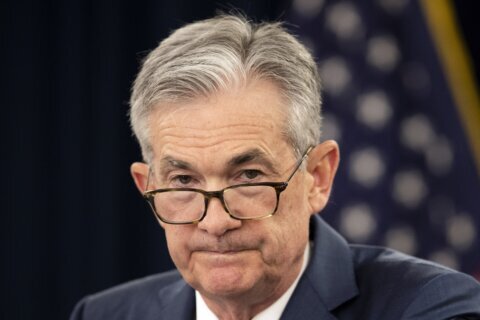After recovering from COVID-19, about 10% — and perhaps more — of people are experiencing continued health issues a month or more after the initial infection. The combination of symptoms they have is called long COVID or post-acute COVID-19 syndrome. The people who have these symptoms are often referred to as COVID long haulers.
There is a wide range of symptoms experienced as part of long COVID, including:
— Brain fog and trouble concentrating.
— Chest pain.
— Continued loss of the sense of smell or taste.
— Cough.
— Difficulty breathing.
— Fatigue.
— Heart palpitations, which make the heart beat faster or irregularly.
Long COVID Heart Issues
These range of symptoms show that COVID-19 can attack a variety of organs in the body. One area of concern for long haulers and their health providers is the effects of COVID-19 on the heart. Primary care doctors and cardiologists have observed several heart changes in people who have recovered from the virus.
These include:
— Atrial fibrillation, or a fast and irregular heart rate that can raise your risk for serious health problems like a stroke.
— Myocarditis, or inflammation of the heart muscle. Inflammation is how your body responds to an injury or illness. Inflammation can affect heart function and lead to heart failure, says Dr. Leonard Pianko, a cardiologist and founder of Aventura Cardiovascular Center in Aventura, Florida.
— Inflammation in the pericardium, which is the sac around the heart.
— Stress cardiomyopathy, also referred to as broken heart syndrome. This happens when stress causes your heart to not function properly. The symptoms may feel like a heart attack but aren’t.
— Tachycardia, which is an elevated heart rate.
— Postural orthostatic tachycardia syndrome, or POTS. This is when the heart rate increases dramatically when someone goes from laying down to an upright position. It can lead to dizziness and fainting, says Dr. James de Lemos, professor of internal medicine in the division of cardiology at UT Southwestern Medical Center in Dallas.
[See: What Are the Symptoms of Coronavirus?]
Who Experiences Heart Problems After COVID
Health providers can’t yet predict who will experience heart problems after recovering from COVID. Many of those affected are young and otherwise healthy. Long hauler symptoms in general seem to be more common in women and in those between 20 and 40 years old, de Lemos says. The severity of the virus doesn’t seem to make a difference, as heart symptoms have emerged both in those who had mild cases and those who were hospitalized.
In a recent study published in JAMA Cardiology, of 100 patients who had COVID-19, 78% had cardiac involvement, as shown on cardiac MRIs. Two to three months after having COVID-19, 60% of those patients still had cardiac inflammation.
At the same time, cardiologists observe that many patients they have treated with COVID-related changes to the heart often have preexisting health conditions such as obesity, says Dr. John D. Day, an electrophysiologist at the Intermountain Medical Center Heart Institute in Salt Lake City and co-author of “The AFib Cure: Get Off Your Medications, Take Control of Your Health, and Add Years To Your Life.”
There are a few reasons why a subset of long haulers may develop heart issues after having COVID, says Dr. Satjit Bhusri, cardiologist and founder of Upper East Side Cardiology in New York City.
For instance, the virus reaches the heart muscle, which can lead to inflammation and heart failure. Additionally, in severe cases of COVID, the body may overreact to the virus and cause the release of cytokines, which are a type of molecule that’s part of your immune system function. This causes a so-called cytokine storm, which can overload the heart and other organs, leading to effects such as inflammation.
One other explanation: Because we were all told to stay home during the beginning of the pandemic, many people did not seek routine health care — and sometimes, emergency health care. So, some people with heart issues may have had an undiagnosed problem that was discovered after having the virus, Bhusri says. Fatal heart attacks rose during the peak of the pandemic because people didn’t seek help, he says.
It’s also too early to say how long these effects on the heart may last. “I think the jury is still out on that,” Pianko says. He predicts that some may experience the symptoms short term, while others will be stuck with a long-lasting heart problem.
Anecdotally, some people with long COVID have seen their symptoms improve after receiving a COVID-19 vaccine, de Lemos notes.
It will likely take a generation or two before scientists have a full grasp on COVID and its effects on the heart, Bhusri believes. The National Institutes of Health has a $1.15 billion study underway to gain a better understanding of long COVID.
[Read: Immunocompromised and Getting the COVID-19 Vaccine.]
Symptoms of a Heart Issue After Having COVID-19
How do you know if you may have a heart issue following COVID-19? Here are some of the nonurgent symptoms that should prompt you to contact your primary care doctor:
— Any change to your overall heart rate or rhythm. You may feel your heart beating faster or slower than before. If you have a pulse oximeter at home or a wearable fitness tracker, you can use them to check your heart rate. Some Apple watches can monitor both your heart rate and heart rhythm.
— Chest pain that comes and goes.
— Dizziness that wasn’t present before.
— Fainting episodes.
— Feeling your heart racing and feeling as if you’re going to faint when you go from a reclined to an upright position.
— Feeling more fatigued.
— Swelling of the ankles.
— Weight gain.
If you have any of the following symptoms, go to the ER for help:
— Feeling lightheaded and having one of the other symptoms listed below.
— Chest pain that continues to get worse.
— Loss of consciousness.
— Racing heart rate that doesn’t go away after a minute or two.
— Sudden, unexplained shortness of breath.
Treatment for COVID-Related Heart Problems
The treatment for a heart issue that emerges after recovering from COVID-19 will depend on what the actual problem is. For instance, if you have an elevated heart rate, your doctor may prescribe a type of medication called a beta blocker to help slow down the heart. For inflammation in the sac around the heart, doctors may use a medicine called colchicine, de Lemos says.
Your primary care doctor may be able to diagnose, monitor and treat you. Or, they may refer you to a cardiologist depending on what the problem is. In some cities, post-COVID clinics have started to treat patients who have long-hauler symptoms, de Lemos says. The number of clinics continues to grow; they are currently in 34 states, according to Survivor Corps, a group geared toward COVID survivors.
[See: Best Hospitals for Cardiology & Heart Surgery.]
Tips if You Have Long COVID
There are some self-care tips that will benefit your heart and the rest of your body as you manage heart issues after having COVID:
1. Get regular physical activity once you get clearance from your health provider. This is good for your heart, but obtain guidance from your doctor first. Strenuous exercise immediately after having COVID can be stressful on your heart and the rest of your body. You may have to start slowly and gradually build up to the exercise routine you had before, de Lemos says.
2. Seek medical help when needed, Pianko advises. Don’t ignore your symptoms or think they’re in your head. Post-COVID syndrome is very real, and some of its effects can be serious if they go untreated.
3. Try to maintain a healthy weight. This will help your heart health in the short and long term, Day says.
4. Eat a healthy diet with more vegetables, fewer processed foods and less sugar, Day advises.
5. Reach out to others who are in your situation. This may not heal your heart, but it can help you feel better to know there are others out there going through the same problems. There are online support groups for long haulers, including Survivor Corps and COVID-19 Long Haulers Support on Facebook and the Body Politic support group.
More from U.S. News
Drugs That Can Threaten Heart Health
6 Signs You’re Having a Heart Attack
How COVID-19 Affects the Heart in Long Haulers originally appeared on usnews.com
Update 11/04/21: This story was previously published at an earlier date and has been updated with new information.









